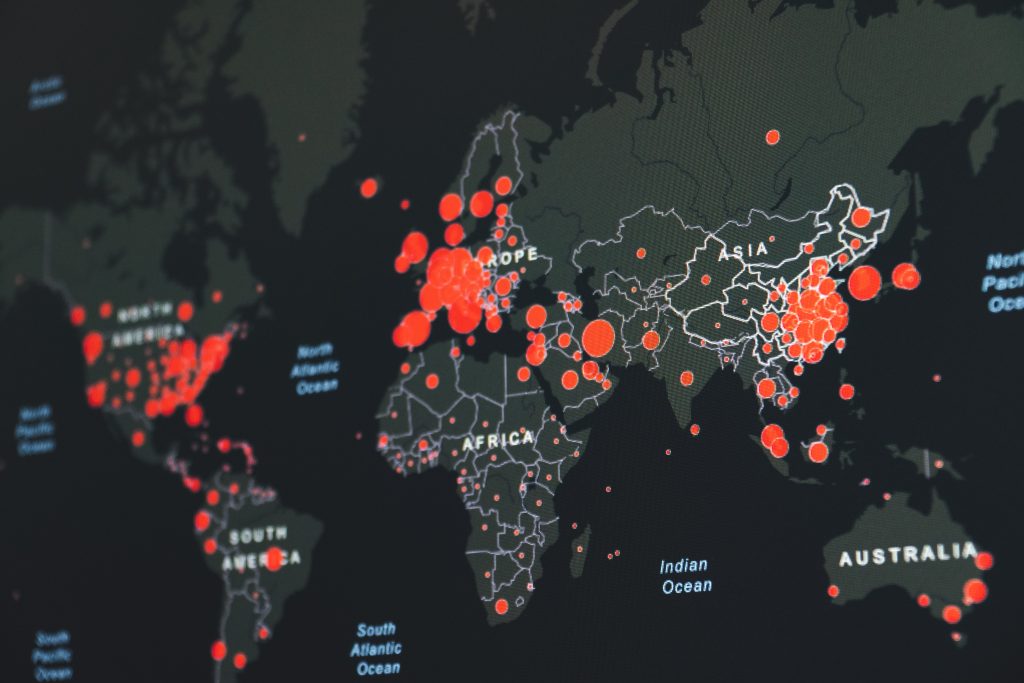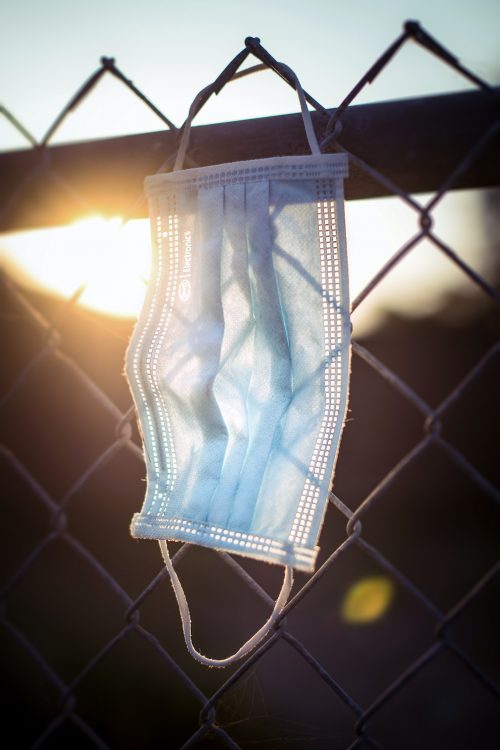In his latest article for Pukaar Magazine, news editor at ITV News Central, Gary Newby, talks about his experiences working in the world of journalism during the pandemic, and the relationships his team built with local communities during this time.
“It is the biggest threat this country has faced for decades … We should prepare to lose loved ones before their time.” The words of our Prime Minister, Boris Johnson, in March 2020. The country was put in lockdown and as I took the journey home from one of our newsrooms along a recently-opened four-lane section of a normally bustling motorway there was a moment when there was not a single vehicle in sight ahead of, or behind me. I realised this would be a story like no other.
Designated as key workers, we kept our Midlands programmes on air and played an important part in conveying vital public health messages whilst reporting on the frontline at hospitals and care homes, and we questioned the policies adopted by national and local authorities. As our viewers became confined to life in lockdown, we had to play our part in providing them the lifeline of accurate information and impartial, trusted reporting.
We at ITV News Central were not immune and understood the issues faced by our audience. We were affected in the ways that others were – coping with the challenges of self-isolation, homeschooling, seeing friends’ businesses collapsing and some losing relatives and others close to them to the virus. And we, like everyone else, did not know how much worse it might become or when, or how, it would end.
We also knew, largely from feedback from our viewers, the importance of finding the means to remain hopeful. So whilst we put in measures to protect our journalists, camera operators, technicians and support staff, including a reduction of personnel allowed in our newsrooms, we persevered to seek out and broadcast stories which shone a light on those who had beaten the virus or had gone above and beyond to support their community and bring people together.

One of the many stories covered by our Leicester Reporter, Rajiv Popat, during that time involved Barbara Bradley, then aged 86, who had lived through the Second World War and recent open-heart surgery. When she contracted the virus, few thought she would survive. She made a full recovery. After broadcasting her remarkable story, which included her love of classical superstar Andre Rieu, his team saw our report and sent to us a recorded message from him. We revisited Barbara to play her the message and she was so moved she was lost for words.
Our reporter Charlotte Cross recounted an uplifting assignment in the book ‘Reporting Coronavirus; Personal Reflections on a Global Crisis from ITV News Journalists’ when she wrote about covering a socially-distanced street party to mark the 75th anniversary of VE Day. She said: “The lockdown tales of how this small neighbourhood had pulled together and grown closer … were so heartwarming.” When she and her Camera Operator began to leave they were applauded for having spent the time to cover the event. She said: “It wasn’t the first time I was pushed to the brink of tears during the pandemic, nor would it be the last; more often than not under circumstances far sadder and more troubling. But whenever I began to struggle on later days, I thought back to that occasion and took heart in the relationship our team had managed to build with our local communities.”
Our reporters and camera operators have been, and remain, on the coal face of our news gathering operation. We have measures in place to protect them on-the-road as best we can but they have still been at some risk to report on every aspect of the pandemic and fulfil our role as a public service broadcaster – and proud to be so. As restrictions have relaxed we’ve adapted too. We remain alert and cautious but won’t compromise on our commitment to bring the stories that matter to our viewers.

We hope the new year will see the pandemic suppressed further and more certainty emerge around a permanent return to life before it. But some changes hastened by the pandemic we will want to keep. There is a real appetite among some of my colleagues to continue with a mix of home and newsroom working. We are already looking at best practices in this area to ensure those who can and want to continue working from home, for at least some of the time, are able to do so effectively with the right support.
For some the pandemic has left an emotional mark and we will be encouraging colleagues to improve their psychological fitness and use the support offered by our Employee Assistance Programme.
The pandemic caused heartbreak and disruption but also brought people together and helped crystallise in all of us what really matters and where our priorities lie – be them personal or professional. Charlotte’s and Rajiv’s stories show how individuals and communities are often at their best in times of strife and the good they do shines brighter against the gloom of fear from a virus that, at the start of its spread, we knew so little about.
We don’t yet know the journey’s end and what further lessons will afford us but we are at least more alert to them and capable of responding than we were ever before. New Year festivities are traditionally a period of reflection and of optimism for the future. Perhaps that’s never been more important this time.
By Gary Newby



